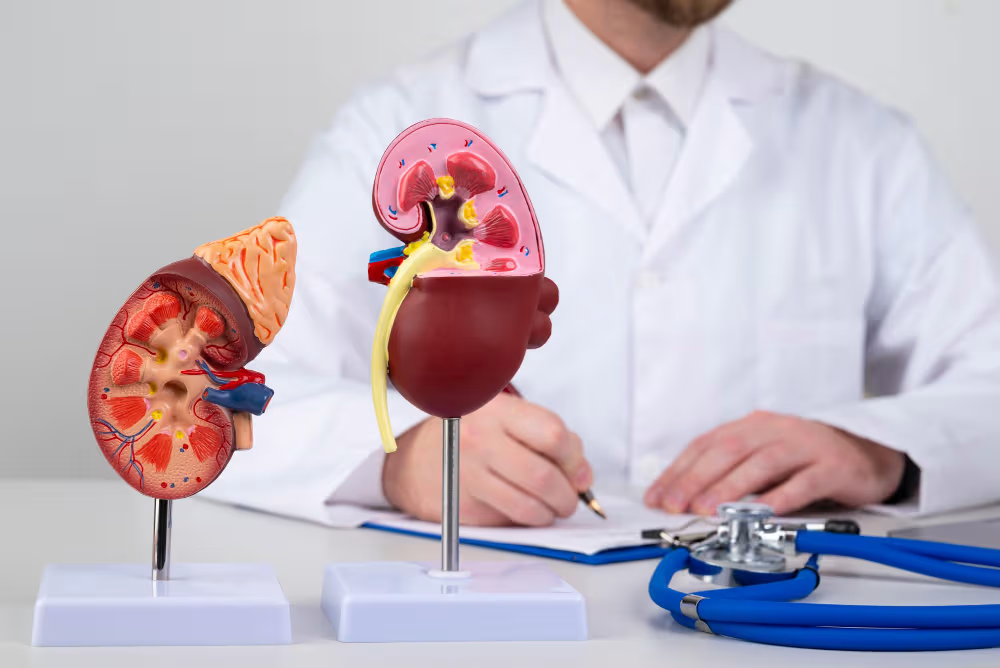
Understanding Uro-Oncology: A Comprehensive Guide to Urological Cancers
When it comes to cancer, early detection and specialized treatment can make all the difference. One such highly specialized area is Uro-Oncology – the branch of medicine that deals with cancers of the urinary system and male reproductive organs. From prostate and bladder cancer to kidney and testicular cancers, Uro-Oncology plays a crucial role in diagnosis, treatment, and long-term management.
In this article, we’ll explore what Uro-Oncology is, the types of cancers it covers, available treatment options, and why consulting a Uro-Oncologist is essential for effective care.
What Is Uro-Oncology?
Uro-Oncology is a subspecialty within urology that focuses on the management of cancers affecting the urinary tract and male reproductive organs. This includes:
- Prostate Cancer
- Bladder Cancer
- Kidney Cancer
- Testicular Cancer
- Penile Cancer
A Uro-Oncologist is a urologist with advanced training in diagnosing and treating these types of cancers. They often work in multidisciplinary teams alongside medical oncologists, radiation oncologists, pathologists, and radiologists to deliver comprehensive cancer care.
Common Types of Urological Cancers
- Prostate Cancer
Prostate cancer is one of the most common cancers among men. It usually develops slowly and may not show symptoms in early stages. Common signs include difficulty urinating, frequent urination at night, and blood in urine or semen. Early detection through PSA (Prostate-Specific Antigen) testing and regular screenings is key to successful treatment.
- Bladder Cancer
Bladder cancer often presents with blood in the urine (hematuria), frequent urination, or pelvic pain. It is more common in smokers and those exposed to industrial chemicals. Depending on the stage, treatment may involve surgery, chemotherapy, or intravesical therapy.
- Kidney Cancer (Renal Cell Carcinoma)
Kidney cancer usually affects individuals over 45 and may be discovered incidentally during imaging for other conditions. Symptoms may include flank pain, blood in urine, and unexplained weight loss. Minimally invasive laparoscopic or robotic-assisted surgeries are increasingly used to remove kidney tumors.
- Testicular Cancer
Though relatively rare, testicular cancer primarily affects younger men aged 15 to 35. It often presents as a painless lump or swelling in the testicles. With early diagnosis, testicular cancer is highly treatable and has excellent survival rates.
- Penile Cancer
A rare cancer often linked to poor hygiene, smoking, and HPV infection, penile cancer usually starts as a lesion or sore on the penis. Early diagnosis and proper surgical care are crucial to preventing further spread.
Diagnostic Tools Used in Uro-Oncology
Early detection plays a vital role in cancer treatment. Uro-Oncologists use a variety of diagnostic tools, including:
- Ultrasound and CT scans for imaging internal organs
- MRI scans for detailed soft tissue visualization
- Biopsy to analyze abnormal growths
- Cystoscopy for direct visualization of the bladder
- PSA Testing for early detection of prostate cancer
These tools help determine the type, location, and stage of the cancer, allowing for customized treatment planning.
Treatment Options in Uro-Oncology
The treatment approach in Uro-Oncology depends on several factors like the type of cancer, its stage, patient’s age, and overall health condition. Common treatments include:
- Surgery
Surgical removal of tumors or cancerous organs is often the first line of treatment. Advanced techniques such as robotic-assisted surgery offer precision, quicker recovery, and fewer complications.
- Radiation Therapy
High-energy rays are used to destroy cancer cells. Radiation is often used in combination with surgery or as a standalone treatment for cancers like prostate and bladder cancer.
- Chemotherapy
Involves the use of drugs to kill or stop the growth of cancer cells. It is often used when cancer has spread beyond the original site.
- Immunotherapy
This treatment boosts the body’s immune system to fight cancer more effectively. Immunotherapy is becoming increasingly relevant in kidney and bladder cancer treatment.
- Targeted Therapy
This newer form of cancer treatment focuses on targeting specific cancer cells without harming normal cells, offering fewer side effects and improved outcomes.
Importance of a Multidisciplinary Approach
Uro-Oncology treatment is most effective when managed by a team of experts. A multidisciplinary approach ensures the patient receives holistic care, from diagnosis to recovery. It often involves:
- Uro-Oncologist (lead surgeon and specialist)
- Medical Oncologist (chemotherapy)
- Radiation Oncologist (radiation therapy)
- Radiologist (imaging)
- Pathologist (biopsy analysis)
- Oncology Nurses and Nutritionists
This collaborative model ensures every aspect of the patient’s health is addressed.
Why You Should See a Uro-Oncologist
If you or a loved one has been diagnosed with any urological cancer, consulting a Uro-Oncologist ensures specialized and updated care. Uro-Oncologists are equipped with the latest knowledge, surgical techniques, and access to clinical trials. They not only focus on treating cancer but also on preserving quality of life, sexual health, and urinary function.
Living Beyond Cancer: Life After Uro-Oncology Treatment
Thanks to advancements in medical science, many urological cancers are now curable, especially when diagnosed early. However, ongoing care and monitoring are crucial. Uro-Oncologists provide follow-up services including:
- Regular check-ups and scans
- Monitoring for cancer recurrence
- Support for urinary or sexual function issues
- Nutritional and psychological counseling
Many patients go on to lead healthy, active lives post-treatment with the right support and guidance.
Final Thoughts
Uro-Oncology is a vital medical specialty that blends expert surgical care with advanced cancer treatments to help patients fight and overcome urological cancers. Whether it’s early-stage prostate cancer or advanced kidney cancer, a Uro-Oncologist offers the specialized knowledge and skill required for optimal outcomes.
If you notice unusual urinary symptoms or have a family history of urological cancers, don’t delay. Early consultation with a specialist can make all the difference.
Take charge of your health. Book a consultation with a trusted Uro-Oncologist today.
